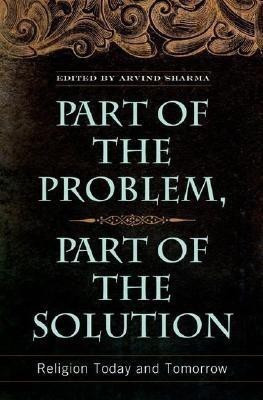Part of the Problem, Part of the Solution(English, Hardcover, Sharma Arvind)
Quick Overview
Product Price Comparison
Part of the Problem, Part of the Solution unleashes religion's true potential to do good by bridging the modern divide between religion and an ever pervasive secular society, a notion often loathed by individuals on both sides of the religious aisle. As noted scholars such as Huston Smith, Karen Armstrong, Rosemary Radford Reuther, Harvey Cox, and Seyyed Hossein Nasr explain throughout the conversations related in this text, people of varied and conflicting faiths can come together to engage in civil, useful dialogue, and members of quite varied religious traditions can work together for the benefit of all humankind and can help defuse the world's current epidemic of violence. By showing how religion is an instrument in human affairs that can be tuned for both good and evil, this book lays the groundwork for an important cooperative effort to blossom.Furthermore, today's trend of associating all religion with suspicion has spiraled into a dangerous situation-that in discarding all religion because some of it causes harm, one risks throwing away the baby with the bathwater. Books such as When Religion Becomes Evil by Charles Kimball, The God Delusion by Richard Dawkins, The End of Faith by Sam Harris, Breaking the Spell: Religion as a Natural Phenomenon by Daniel Dennett, and God is Not Great: How Religion Poisons Everything by Christopher Hitchens have created quite a sensation, leaving the impression that religion, at its root, brings more heartache than handshakes. This development has dismayed many scholars, students, and practitioners of religion, of all faiths, who believe that only half the story-the negative half-is being told. Although demonstrating that certain religious beliefs have surely contributed to the violence that has occurred in this century, this book also explores how other religious teachings can help solve the epidemic of violence.


